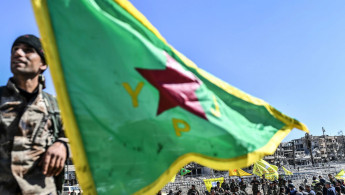Syrian Kurdish officials back long-term US role in Syria
"We're not just going to walk away right now until the Geneva process has traction".
 |
|
Senior Syrian Kurdish politician Fawza Youssef also said a US role would be very important for the future of the country.
"The United States and the coalition forces played a major role in fighting Daesh, and to reach a fair political settlement, we see a need for international guarantees", said Youssef, a senior member of the Kurdish-led authority in northern Syria.
She pointed to an increase in humanitarian aid to northern Syria by Washington since the Syrian Democratic Forces (SDF) recaptured Raqqa as a sign of a widening US role in the country.
The SDF – a coalition of Kurdish and Arab fighters – emerged as a major partner of the US in driving out IS from large swathes of territory in Syria.
The US-led coalition has repeatedly said it does not seek to fight Syrian regime president Bashar al-Assad's military, and US-backed forces have mostly avoided direct confrontation with the Syrian regime.
But Iranian and Syrian officials have signalled their intention to take back areas captured from IS by the SDF.
Kurdish-led authorities in parts of northern Syria are already moving ahead with plans to establish a federal system in areas they control, kicking off a three-phase election process in September in Kurdish majority regions.
The plans for autonomous zones in northern Syria have encountered broad opposition from the United States, neighbouring Turkey, and the Syrian government in Damascus.
Agencies contributed to this report.





 Follow the Middle East's top stories in English at The New Arab on Google News
Follow the Middle East's top stories in English at The New Arab on Google News
![Israeli forces ordered bombed Gaza's Jabalia, ordering residents to leave [Getty]](/sites/default/files/styles/image_330x185/public/2176418030.jpeg?h=a5f2f23a&itok=_YGZaP1z)

